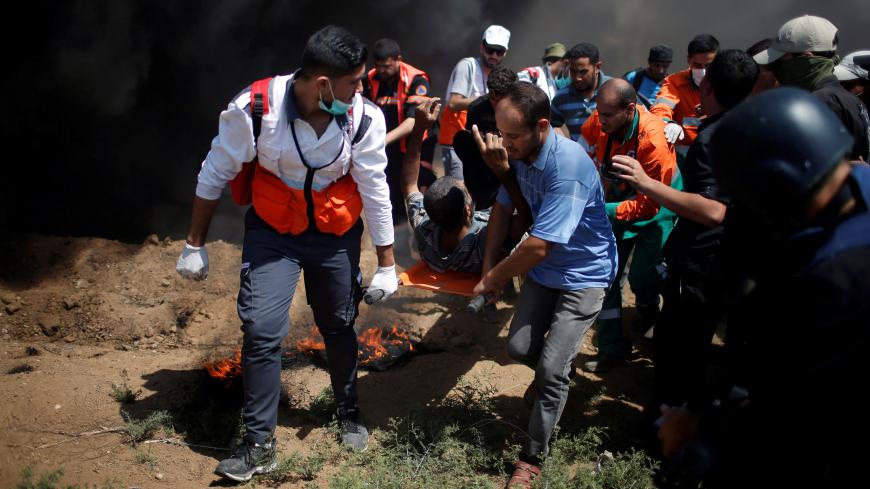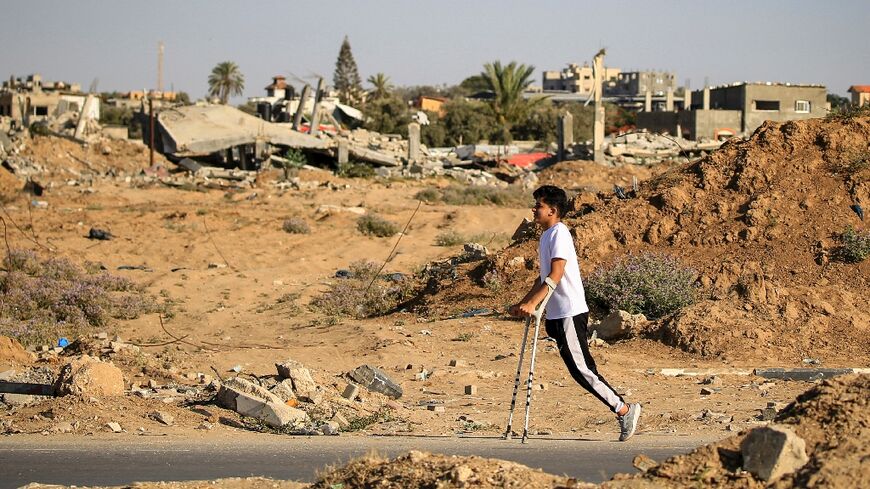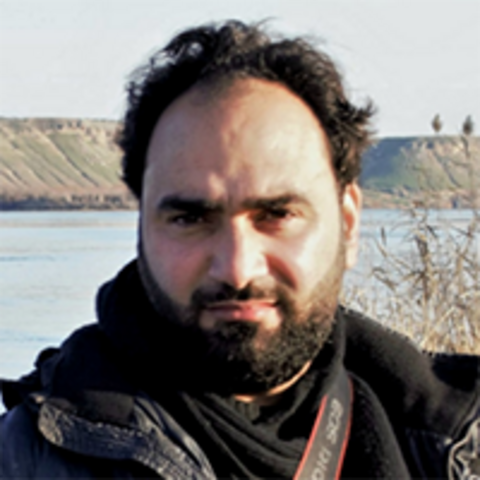Wartime medicine shortage deepens Gazan suffering

Mohammed Khader goes from one pharmacy to another in the southern Gaza Strip city of Rafah, desperately searching for his relatives' medicines amid a deepening shortage after months of war.
"This is the fifth pharmacy I've looked in," said the young man who was displaced from Jabalia refugee camp to Rafah.
He is just one of hundreds of thousands of displaced Palestinians driven into the territory's southernmost city by Israel's relentless military campaign against the militant group Hamas.
"I found only one type out of three types (of medication) prescribed by the doctor. My father has a perforated eardrum from the shelling and is in constant pain," Khader told AFP.
He said his sister has chronic lupus and needs four types of treatment, but only one is available.
"Her health is deteriorating quickly. She's in severe pain and we cannot do anything."
The health ministry in the Hamas-run Gaza Strip warned this week of "a shortage of medications and medical supplies and the inability to supply more than 60 percent of the essential list of basic primary health care medicines".
It said 350,000 people in Gaza who have chronic diseases do not have medication, warning of "serious health complications for patients".
Pharmacist Mohammed Sahwil said from his pharmacy in Rafah that health care in the territory is going through "a catastrophic period".
"Not all types of medication are available, especially for chronic diseases such as heart, pressure, diabetes and cancer," he said.
"There's a shortage of children's medications, antibiotics and even painkillers.
"Even alternative medicines that may help in some cases ran out several months ago."
- 'We feel helpless' -
At another pharmacy, Abdul Hadi Dahir apologised to a man searching for Parkinson's medication, as a frustrated woman also left the shop empty-handed.
"The need for medicines has peaked, especially with the spread of disease and epidemics due to overcrowding, poor nutrition and living conditions," Dahir told AFP.
He said many people he sees display symptoms of hepatitis.
"We feel helpless. There are no medications and we cannot intervene without doctors' instructions."
Around 1.4 million Palestinians, more than half the Gaza population, are now packed into Rafah in dire humanitarian conditions and at high risk from disease, according to the United Nations.
The Gaza Strip has been under Israeli siege since 2007 when Hamas took power, but only small amounts of aid have been allowed into the territory since the Israel-Hamas war broke out more than four months ago.
The health ministry has warned that the cramming together of so many displaced people and the cold weather "has increased the spread of respiratory and skin diseases and other infectious diseases" including hepatitis A.
Th war erupted last October 7 after Hamas militants launched an unprecedented attack into southern Israel, resulting in the deaths of around 1,160 people, most of them civilians, according to an AFP tally based on official Israeli figures.
Israel responded with a devastating military offensive against Gaza, which has killed 28,663 people, according to the latest health ministry toll.
In western Rafah, more than 200 people queued outside the Kuwaiti Hospital pharmacy, waiting for their turn with medical prescriptions in hand.
- Verge of collapse -
"We stand for hours to get a single pill," said Jihan al-Quqa, who arrived at the pharmacy early in the morning.
"They give us a pain reliever, but there are no antibiotics or treatments. The children and the elderly are sick."
The displaced woman from Khan Yunis added: "My husband suffers from hypertension and diabetes and his leg is swollen, but we cannot get medicine for him.
"The doctors say he has a vein blockage due to not taking his medicine."
Abdullah al-Hajj, whose leg has been amputated, sits waiting in a wheelchair.
"There's no pharmacy in Rafah that has painkillers so I can sleep at night," he said.
Gaza's health care system is on the verge of complete collapse. The United Nations reports that none of the territory's hospitals is operating normally, and just 13 out of 36 facilities are partly operational.
The World Health Organization warned on Wednesday that hospitals in Gaza lack sufficient supplies.
Doctors are forced to amputate because they lack the necessary medicines to save patients' limbs, according to Dr Rik Peeperkorn, the WHO representative in Gaza.
Every day, 60-year-old Nabil al-Othmani searches in vain for his epilepsy medication.
"They tell me it's not available at all," he said, trying to hold back tears.
Mohammed Yaghi, displaced from Gaza City, added: "We're dying slowly because of the lack of medicine and treatment inside Rafah city."








